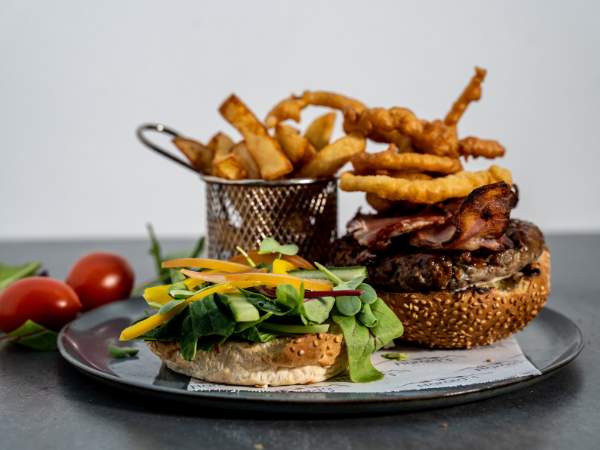News
No trade-offs
Monday, July 9th, 2007
The term ‘Fairtrade’ has become a foodie buzzword of late, but what is it actually all about?
For you as an individual, instead of just sitting down in your favourite restaurant or purchasing your usual groceries at the local supermarket, the emphasis now is on taking a step back to consider where the food comes from and whether the process from land to table was just and fair.
Some of the ingredients in your meal have flown thousands of miles to get to you (with the environmental side-effects and pollution being a further and separate current concern) and were bought from farmers far away, via various purchasing channels. Fairtrade is all about ethically purchasing goods that were grown in developing countries, so that the farmer receives a fair payment for his labour – usually from developed countries.
Raising profits for producers
With globalisation and international free trade comes intense market fluctuation, ever-changing trade policies and collapsing world commodity prices. This generally results in the farmer losing out on profits – which ends up going to those who ironically have plenty of capital to begin with – due to extraordinarily long supply chains and benefits going to the buyer. These buyers are often more protected against fluctuating prices and demand.
Fairtrade is all about protecting the farmer, sustainable food production and about the individual in developed countries displaying a sense of social responsibility. Purchasing agreements use ethical principles which give back to the local community where the food is grown and support small, independent farmers as well as the idea of organic food production.
Prices are guaranteed, not changed on a whim. Co-operatives comprising local farmers remove many of the middlemen, raising profits.
Wikipedia calls Fairtrade a ‘social movement’ that ‘deliberately work(s) with marginalised producers and workers in order to help them move from a position of vulnerability to security and economic self-sufficiency. It also aims at empowering them to become stakeholders in their own organisations and actively play a wider role in the global arena to achieve greater equity in international trade.’
The FAIRTRADE stamp
So when you see the FAIRTRADE mark on a product, which is the symbol of the Fairtrade Foundation (and the UK’s only independent consumer label) it is a guarantee that the farmer who produced the product always gets a fair price for their crops, which is firmly regulated in order to assure that their production costs are always covered – following horror stories of crippling debt and land loss.
A social premium is also invested into the producers’ businesses, community and environment to improve standard of living.
The Fairtrade Foundation asks you, the consumer, to do your bit in buying Fairtrade stamped products, which are in turn bought direct from the farmer at better prices.
Fair Trade pioneers – Green & Black’s
The Fairtrade Foundation checks all Fairtrade products against an internationally agreed list of criteria to be sure that it meets the high standards of Fairtrade products.
The first product ever to receive a FAIRTRADE Mark was organic chocolate company, Green & Black’s, Maya Gold bar in 1993 – a rich dark chocolate with essence of orange and spices, made from beans produced by the Maya Indians in southern Belize.
As a result of their direct involvement with the cocoa farmers, cocoa production has increased tremendously in the area and incomes have become more secure.
2% of all sales are sent to the Fairtrade Foundation for commitment to other Fairtrade projects and creating publicity surrounding Fairtrade products. More on Green & Black’s.
Criticism of Fair Trade
Some think that Fairtrade movements still don’t do enough to equalise trade and others see it as a subsidy that impedes growth.
What can you do?
*Buy locally produced food whenever possible. If you’re a chef, use more seasonal, locally sourced food.
*Look for a Fair Trade label on food before you purchase it – baby steps at the moment in South Africa!
Further Fairtrade links
www.fairtrade.org.za
www.wieta.org.za
www.greenandblacks.com
www.fairtrade.org.uk
www.fairtourismsa.org.za
http://en.wikipedia.org/wiki/Fair_trade
www.fairtrade.net
www.onevillage.org








